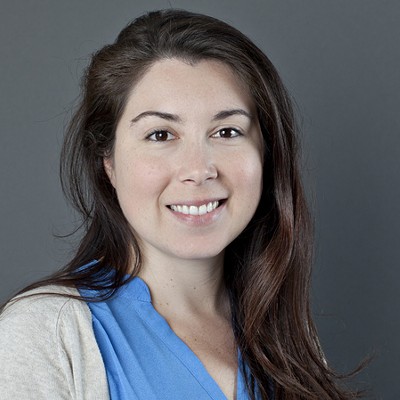Pesticides. Fungicides. Neonicotinoids. Organic. Hormone-free. Anti-biotic free. Non-GMO. Fair trade. Pasture raised. Grass fed vs. grass finished. How far did it travel? How well was it treated? How much was its DNA tinkered with? Were fossil fuels involved?
The concept of food was simple once, but these days the very necessary act of eating has become fraught with peril and confusion. It was once considered your patriotic duty to grow your own food, or at least supplement the basics in your own "Victory Garden." Now, the Department of Agriculture is more like a marketing/lobbying firm for Big Ag than an advocate for the average eating citizen, so the mantra is "buy, buy, buy."
But buying is complicated and, frankly, why spend money on something when you can grow it yourself? Gardening can be the perfect antidote to modern life and all its fast paced, stress inducing, social network imposed concerns. Leave your smartphone inside and take a break by doing a little manual labor.
See also:
- Andrews Farm: New Urban Farm to Provide Cheap Organic Produce in Downtown Fort Lauderdale
- Fort Lauderdale Vegetables Expanding to 110 Tower in Downtown Fort Lauderdale
- Fort Lauderdale Vegetables' Michael Madfis: We Need a Food Policy Council
Michael Madfis is the mind behind Fort Lauderdale Vegetables. He thinks that farms should be organic, small, and hyper efficient so that they can grown right in the middle of urban areas, like his Andrew Farm and his new rooftop farm on top of 110 Tower, both in downtown Fort Lauderdale.
No one knows better than he does the challenges and rewards of growing fruits and veggies on a small (yet ridiculously productive) scale. He has some tips for the urban farmer.
We're in Zone 10, so summer isn't really growing season for us, but late summer and fall are, so it's time to prepare. To keep things simple and moving, Madfis plans his farm in three months cycles and you can do the same in your own garden.
"We're in August so it's a funny time to start but it's a good time to get the seedlings and get the soil ready so we are ready to plant around September 15. That's my next planting date," says Madfis.
He recommends starting your seedlings indoors now and preparing the outdoor soil while they sprout up. As to the soil, he recommends organic compost.
"If you already have a small garden and you've done some composting, you can pull out any old plants and maybe throw that into your compost for your next three months while you're also preparing those seedlings," says Madfis. "If you don't have compost, in Palm Beach there is SWA (Solid Waste Authority) and they have a solid waste material -- they even make it for free for people who live in Palm Beach. You can use that fortify your soil and get 20% or so of what you're going to need to fill it. It is very rich and it's a good way [to improve your soil], especially if you are working in the ground, you can have nematodes and this will just push those out because it's so rich."
As to the seeds, here's what Madfis recommends to begin germinating now, here in zone 10:
- Broccoli
- Carrots
- Cauliflower
- Collards
- Eggplant
- Peppers
- Lima Beans
- Mustard
- Onions
- Potatoes
- Radish
- Summer Squash
- Tomatoes
What would a home garden be without tomatoes?
Begin the seeds indoors or on a patio. They don't need sun at this initial stage though they need to be wet down twice a day. Start them now and they should be ready to go into your newly -- and organically -- enriched soil by about September 15.
If prepping seedlings seems too hard -- or if yours fail (it happens) -- you can get trays from Fort Lauderdale Vegetables. It's about $30 for 72 seedlings and you can get a full tray of just one kind or order a mixed tray.
Of course, there's also the option of leaving the dirty business of growing veggies to the pros and buying locally.
Whether you need seedlings, full grown veggies, or just advice and guidance, you can contact Michael Madfis of Fort Lauderdale Vegetables by calling 954-854-8788, or emailing [email protected]. You can also follow Fort Lauderdale Vegetables on Facebook or Twitter. Visit fortlauderdalevegetables.com.
See also:
- Andrews Farm: New Urban Farm to Provide Cheap Organic Produce in Downtown Fort Lauderdale
- Fort Lauderdale Vegetables Expanding to 110 Tower in Downtown Fort Lauderdale
- Fort Lauderdale Vegetables' Michael Madfis: We Need a Food Policy Council
Follow @CleanPlateBPB











